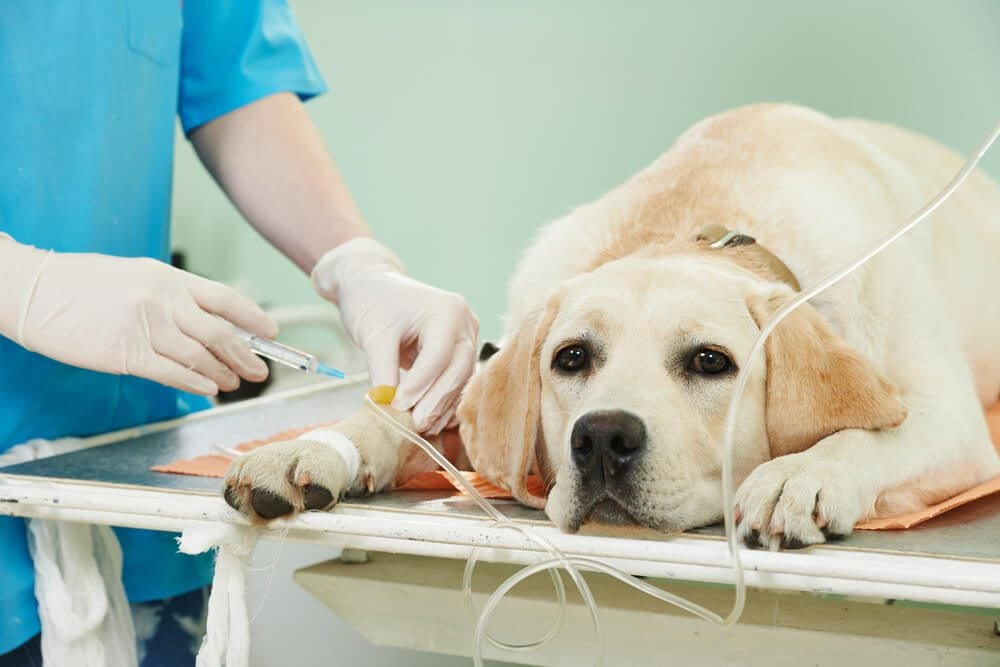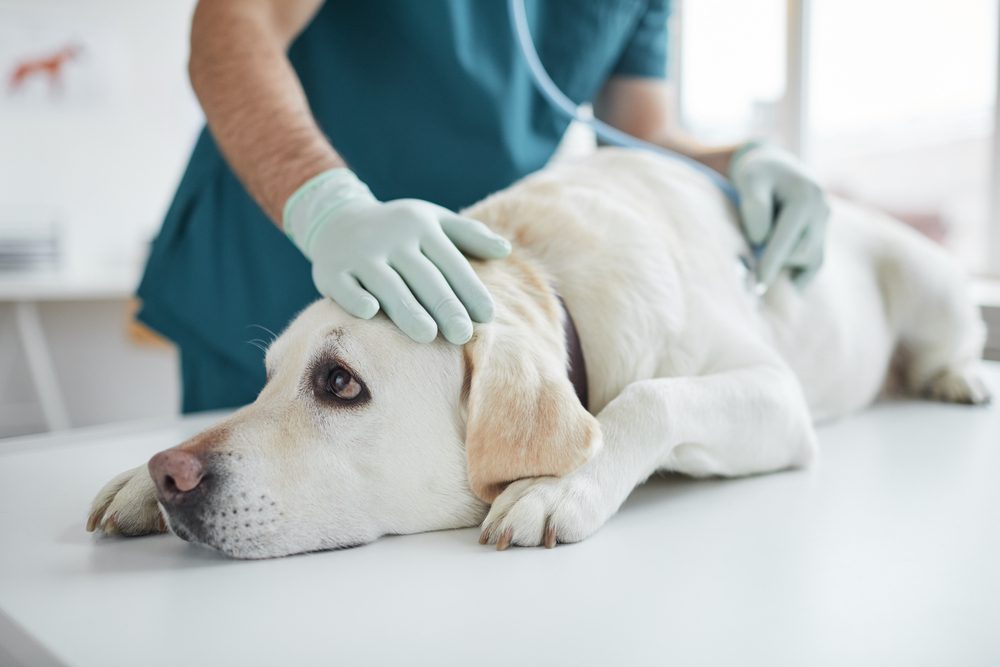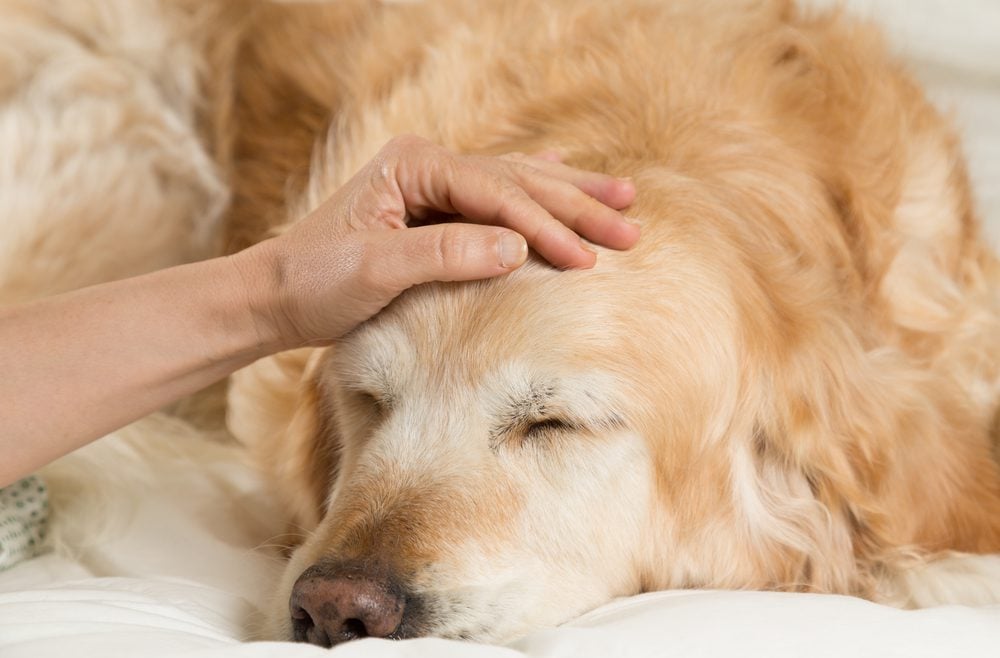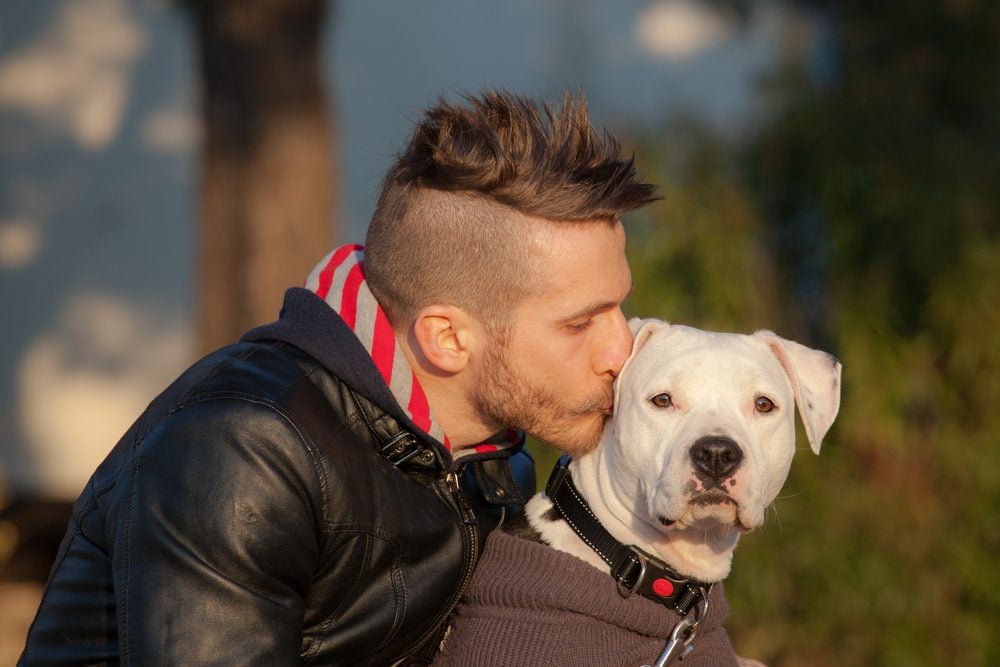Cancer in Dogs Treatment: Review of the Best Options

Table of Contents
Can Cancer in Dogs be Cured?

Yes, cancer in dogs can be cured, in some cases. However, more often than not, the goal of cancer in dogs treatment is remission rather than cure. Remission simply means that the warning signs and symptoms of cancer are reduced and managed.
The idea behind remission instead of cure is to give a dog a treatment plan that is tolerable and does not negatively impact the dog’s quality of life. Also, in some cases, remission is the only option possible.
The odds of curing cancer are higher if it is caught and treated early. As cancer progresses, the chances of successful cancer in dogs treatment become slimmer, in part because cancer may have metastasized (spread) to other parts of the body, like the lungs.
There is no single treatment that can cure canine cancer. The best option is to use several treatment approaches at once.
What is the Best Treatment for Cancer in Dogs?
There is no single best cancer in dogs treatment. The best cancer in dogs treatment is highly dependent on several factors, such as those listed below:
- Tumor type and location
- Stage of cancer (lymph node metastasis)
- The general health of the dog
Your vet will help you decide which cancer in dogs treatment is best for your pet. In most cases, the ideal treatment will be a combination of two or more therapies.
How do Vets Treat Dogs With Cancer?

There is various cancer in dogs treatment options. Let’s take a closer look at each of them.
Surgery for Dog Cancer. During surgery, the cancerous mass is physically removed from a dog’s body. It is highly effective for small non-metastasized tumors.
With small tumors that haven’t spread to other organs, surgical removal of those tumors can eliminate all the cancer cells present and sometimes completely cure cancer.
In some cases, surgery may be done even if a tumor has spread. A veterinary oncologist may recommend surgery to reduce the size of the tumor, a process known as debulking.
As effective as surgery can be to treat dog cancers, tumor location and a dog’s health are considered when determining if surgery is possible. For example, tumors on delicate organs, such as the brain and heart, aren’t always operable. The dog’s age and anesthesia risk may also make surgery too risky to perform.
Chemotherapy for Dog Cancer. Chemotherapy is the use of drugs to treat cancer. Chemotherapy drugs are usually given in the form of intravenous injections. It is usually recommended for tumors that have spread to other organs. Chemotherapy can also be used to shrink the tumor so that it can then be surgically removed.
Ideally, chemotherapy should target cancer cells and leave the normal cells unharmed. Various chemotherapy drugs have been developed in recent years that are effective at targeting only cancer cells. Dogs can suffer from chemotherapy’s side effects (e.g., vomiting, lethargy) but tend to chemo handle much better than humans do. For example, dogs typically do not experience hair loss as humans do.
Not all types of cancers respond to chemotherapy. In such cases, cancer in dogs treatment will include other approaches.
Radiation Therapy for Dog Cancer. Radiation therapy uses concentrated x-rays to destroy or damage cancer cells. Radiation therapy is often combined with other cancer treatments like surgery and chemotherapy.
For example, a dog may receive radiotherapy before the surgery to shrink the tumor or after the surgery to eliminate any residual tumor cells.
Radiation therapy is a very effective treatment but it has the downside of damaging normal cells, particularly those that divide quickly. Such cells are found in organs like the lining of the mouth, the gastrointestinal tract, and bone marrow. Anesthesia is often used to keep the dog still during the radiation therapy session.
Immunotherapy for Dog Cancer. The concept of the therapy is to use the dog’s own immune system to destroy cancer cells. Immunotherapy for dogs is still a growing area but is quite promising in humans.
So far, immunotherapy treatments have been approved by the Food and Drug Administration (FDA) for cancers like osteosarcoma (bone cancer), melanoma, lymphoma, and brain tumors.
Intratumoral Injection for Dog Cancer. This cancer in dogs treatment is also novel but more thoroughly researched. It includes the injection of specific drugs directly into the tumor.
One outstanding intratumoral injection is Stelfonta, which is used as a treatment for canine mast cell tumors that have not undergone metastasis. The drug was approved by the FDA in November 2020.
So far, Stelfonta has demonstrated impressive efficacy in treating mast cell tumors in dogs. In a clinical trial to register the drug in the United States, 75% of the dogs in the trial had a complete response to Stelfonta after just one dose; a complete response means that the cancer was no longer detectable after treatment. In that same study, the tumor sites on most dogs healed within 6 weeks.
Combination Therapy for Dog Cancer. In most cases, veterinarians use two or more cancer in dogs treatment approaches to cure or manage the dog’s cancer.
Combination therapy is the most commonly used treatment option for cancer in veterinary medicine. This is because using two treatments improves the likelihood of success.
Plus, using two or more cancer in dogs treatment approaches can help manage side effects and help dogs maintain a good quality of life while undergoing cancer treatment.
Alternative Medicine Cancer Treatments for Dogs
These are therapies that may not necessarily treat cancer but can help manage signs of cancer and the side effects of treatment. Consult with your trusted DVM about holistic cancer treatment for dogs.
Turkey Tail Mushroom for Dogs. Turkey Tail Mushrooms have been a staple in Traditional Chinese Medicine for their ability to boost immunity and overall health. They contain many health-promoting compounds.
The most notable health-boosting component on Turkey Tail Mushrooms is a specific type of polysaccharide known as beta-glucans. Beta-glucans support the dog’s immune system.
Turkey Tail Mushrooms also contain a variety of healthy phytochemicals (plant-produced compounds), such as flavonoids and phenols, with strong antioxidative properties. Antioxidants are important in fighting cancer.
CBD Oil for Dogs. CBD or cannabidiol for dogs is a cannabinoid compound that is extracted from organic hemp. CBD products for dogs are available in various forms and are extremely easy to use.
CBD products can be an important part of cancer in dogs treatment. For example, CBD has anti-inflammatory properties and can help minimize pain. It can also reduce the side effects (nausea and loss of appetite) associated with certain cancer treatments.
A study published in 2020 reported that CBD can help slow down cancer cell reproduction in certain cancer types in dogs, including osteosarcoma.
Turmeric for Dogs. Turmeric has been identified as an extremely powerful antioxidant. This is because of the compound curcumin.
Curcumin is the compound in turmeric that gives the spice the signature bright yellow color and well-known health-boosting properties.
You can give your dog organic turmeric mixed with regular food, in the form of golden paste, or use pet supplements and treats containing turmeric. Consult with your veterinarian so that you know how much turmeric to give your dog.
Good Nutrition for Dogs. Dogs are carnivores and need a nutritionally rich and balanced meat-based diet. They also need to be fed the right amount of food at the correct time.
While dogs do not necessarily need to eat plant foods, they can benefit from the antioxidant power that comes from the phytochemicals in plant foods. They also need plants as a source of dietary fiber, vitamins, and minerals.
It is a good idea to incorporate fruits and veggies into your dog’s diet to keep your dog in optimum health while undergoing cancer in dogs treatment. Making changes to your dog’s diet too quickly can upset your dog’s tummy. Your veterinarian can advise you on gradually incorporating new foods into the diet and what to do if a certain food makes your dog sick.
Omega-3 Fatty Acids for Dogs. This is a type of unsaturated fatty acid that has many health benefits for the body. Fish oil is one of the best sources of omega-3 fatty acids.
The anti-inflammatory effects of omega-3 fatty acids can help boost a dog’s immune system and overall health during cancer in dogs treatment.
Antioxidants for Dogs. Oxidative stress is a known risk factor for cancer and is caused by free radicals. The free radicals can be produced by the body naturally or come from external factors like food and stress. Free radicals can damage cells, increasing the risk of cancer.
Most foods naturally contain antioxidants, but plant foods like blueberries and spinach and herbs like turmeric have the highest concentrations. There are also many pet supplements featuring added antioxidants.
What are Cancer Treatment Side Effects in Dogs?

Cancer in dogs treatment comes with potential risks and side effects. Your trusted DVM will explain these side effects and discuss the pros and cons of cancer treatment. Here are some of the more common cancer in dogs treatment side effects:
- Gastrointestinal Distress. This is a common side effect of cancer treatment that usually presents as nausea, vomiting, or diarrhea. It is commonly seen as an effect of radiation therapy, especially if it is targeting cells in the digestive system. Chemotherapy can also cause GI upset.
- Reduced Immunity. Chemotherapy has the side effect of reducing white blood cell count. Your vet might recommend antibiotic therapy to minimize the risk of infection. However, antibiotic therapy to prevent infection can promote the growth of antibiotic-resistant bacteria.
- Loss of Appetite. If a dog’s digestive system is disturbed, the dog may lose interest in eating because of GI discomfort.
- Weight Loss. This is a result of increased energy demand during cancer treatment and sometimes reduced intake of food.
Other side effects of cancer in dogs treatment include lethargy and weakness.
How Much Does it Cost to Treat a Dog With Cancer?
The cost of cancer in dogs treatment ranges from as low as $100 to over tens of thousands of dollars. The exact cost depends on the type and duration of treatment.
Surgery is usually the most expensive cancer in dogs treatment for cancer in the short term, ranging from $500 to $8000. However, it is usually often a one-time cost.
Chemotherapy and radiotherapy cost less in the short term, about $150 to $500 per session, but these can last a long time resulting in the cost continuously adding up.
Cancer Treatment Research for Dogs
The canine cancer treatment field is showing great progress. Researchers all over the world are conducting rigorous scientific studies to develop and improve cancer in dogs treatment.
One particularly interesting area is cancer vaccines. Cancer vaccines have been developed for common cancers like hemangiosarcoma in dogs, osteosarcoma, and melanoma. So far, the results are positive.
Currently, the largest study to date on canine cancer is a clinical trial to determine the effectiveness of vaccinating dogs against cancer. It is known as the Vaccination Against Canine Cancer Study (VACCS) and is running until May 2024. In this study, researchers will determine if giving dogs vaccines can really lower cancer risk or at least delay the onset of cancer.
Genomics, the study of genes, is also opening new doors for cancer research. FidoCure is FDA-approved cancer in dogs treatment that sequences DNA to provide a personalized cancer approach.
Finally, Radixact is a new way of giving radiation therapy to dogs while minimizing damage to surrounding tissues. Initially, it was used with oral cancers but is being applied to other parts of the body, like the lungs.
These aren’t the only exciting things happening in the field of veterinary oncology. There is more novel cancer in dog treatment options in the pipeline that could provide hope for pups with cancer.
How Long do Dogs Live With Cancer?
The time a dog lives with cancer varies widely. The lifespan of a dog with cancer depends on many factors, including the form of cancer, stage of cancer, available treatment options, and a dog’s overall health.
Dogs whose cancer is caught and treated early tend to live longer. Those whose cancer is caught in the later stages may not live as long because the cancer is advanced and treatment may not be effective.
The time your dog has with cancer is very individual. Early detection and high-quality cancer in dogs treatment are crucial to giving your dog extending your dog’s lifespan with cancer.
What are the Chances of a Dog Surviving Cancer?

A dog’s chances of surviving cancer depend on various factors, including the aggressiveness of cancer and when treatment begins. The chances of going through cancer in dogs treatment and surviving are higher for patients with an early-stage cancer diagnosis.
As we mentioned above, good treatment and quality of life are key things that a pet owner can give their dog with cancer. For healthy dogs, dog owners should do their best to keep their dogs in optimal health.
Also, many dog owners wonder how to prevent cancer in dogs. Sadly, there is no one thing you can do to shield your dog from developing cancer. But there are ways of minimizing the risk. Some of these include a healthy diet, physical exercise, proper and regular veterinary checkups.

















